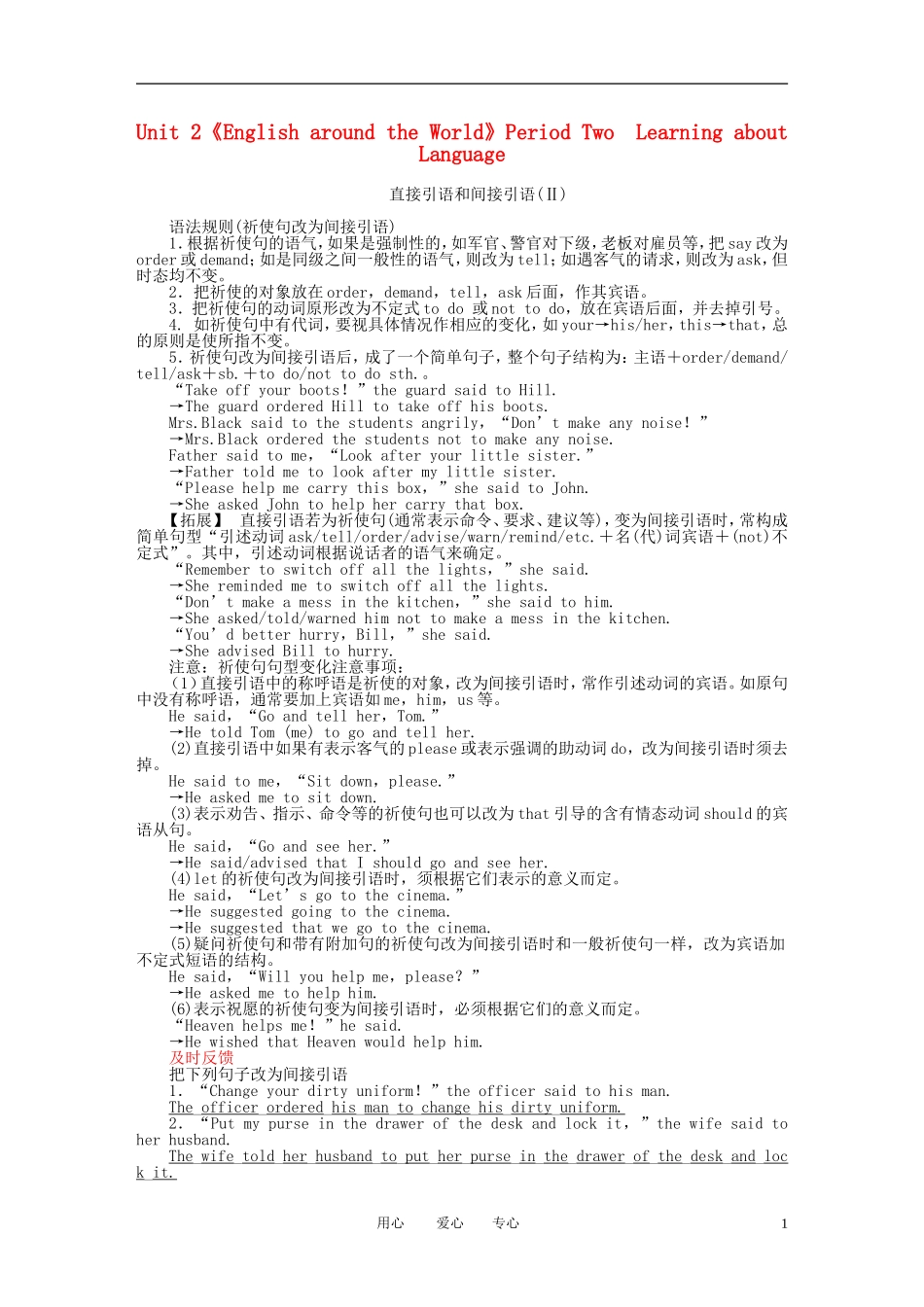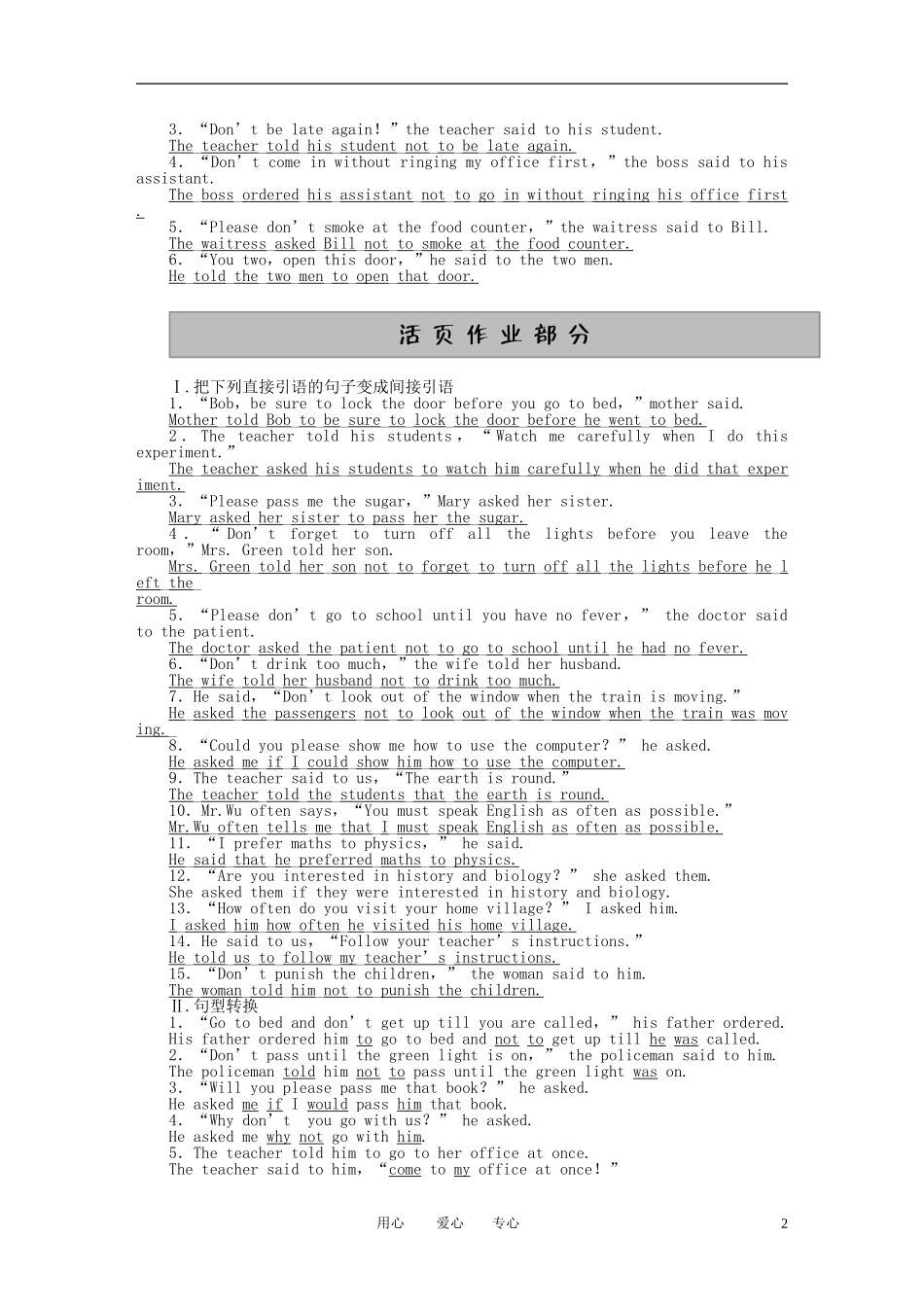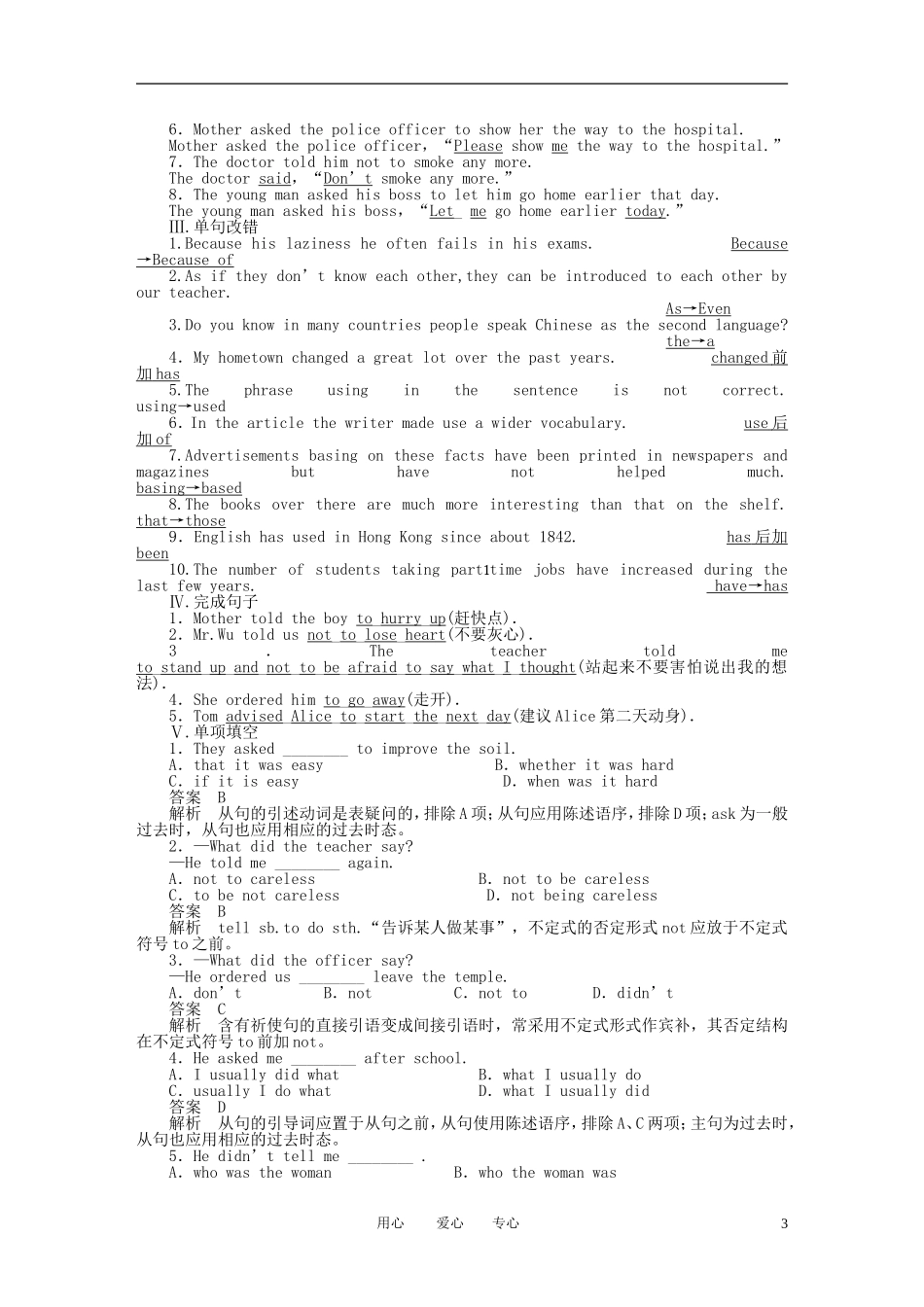Unit 2《English around the World》Period Two Learning about Language直接引语和间接引语(Ⅱ)语法规则(祈使句改为间接引语)1.根据祈使句的语气,如果是强制性的,如军官、警官对下级,老板对雇员等,把 say 改为order 或 demand;如是同级之间一般性的语气,则改为 tell;如遇客气的请求,则改为 ask,但时态均不变。2.把祈使的对象放在 order,demand,tell,ask 后面,作其宾语。3.把祈使句的动词原形改为不定式 to do 或 not to do,放在宾语后面,并去掉引号。4. 如祈使句中有代词,要视具体情况作相应的变化,如 your→his/her,this→that,总的原则是使所指不变。5.祈使句改为间接引语后,成了一个简单句子,整个句子结构为:主语+order/demand/tell/ask+sb.+to do/not to do sth.。 “Take off your boots!”the guard said to Hill.→The guard ordered Hill to take off his boots.Mrs.Black said to the students angrily,“Don’t make any noise!”→Mrs.Black ordered the students not to make any noise.Father said to me,“Look after your little sister.”→Father told me to look after my little sister.“Please help me carry this box,”she said to John.→She asked John to help her carry that box.【拓展】 直接引语若为祈使句(通常表示命令、要求、建议等),变为间接引语时,常构成简单句型“引述动词 ask/tell/order/advise/warn/remind/etc.+名(代)词宾语+(not)不定式”。其中,引述动词根据说话者的语气来确定。“Remember to switch off all the lights,”she said.→She reminded me to switch off all the lights.“Don’t make a mess in the kitchen,”she said to him.→She asked/told/warned him not to make a mess in the kitchen.“You’d better hurry,Bill,”she said.→She advised Bill to hurry.注意:祈使句句型变化注意事项:(1)直接引语中的称呼语是祈使的对象,改为间接引语时,常作引述动词的宾语。如原句中没有称呼语,通常要加上宾语如 me,him,us 等。He said,“Go and tell her,Tom.”→He told Tom (me) to go and tell her.(2)直接引语中如果有表示客气的 please 或表示强调的助动词 do,改...


